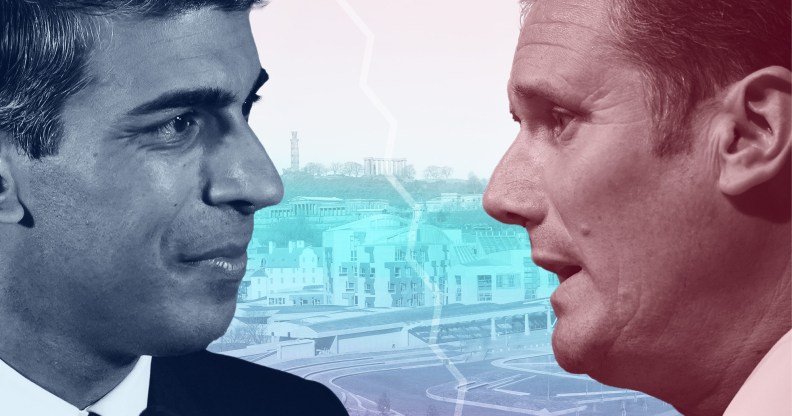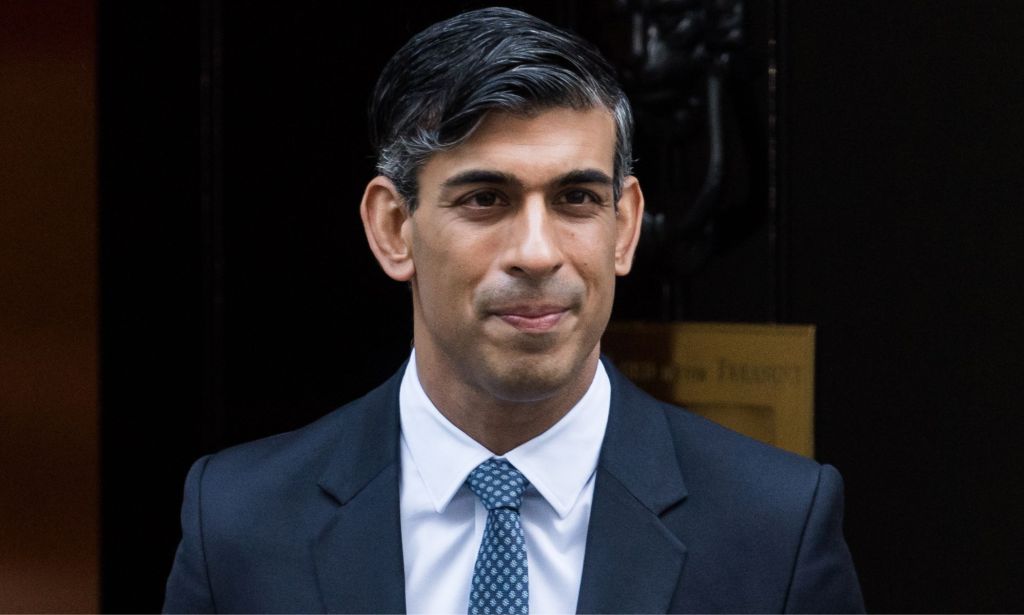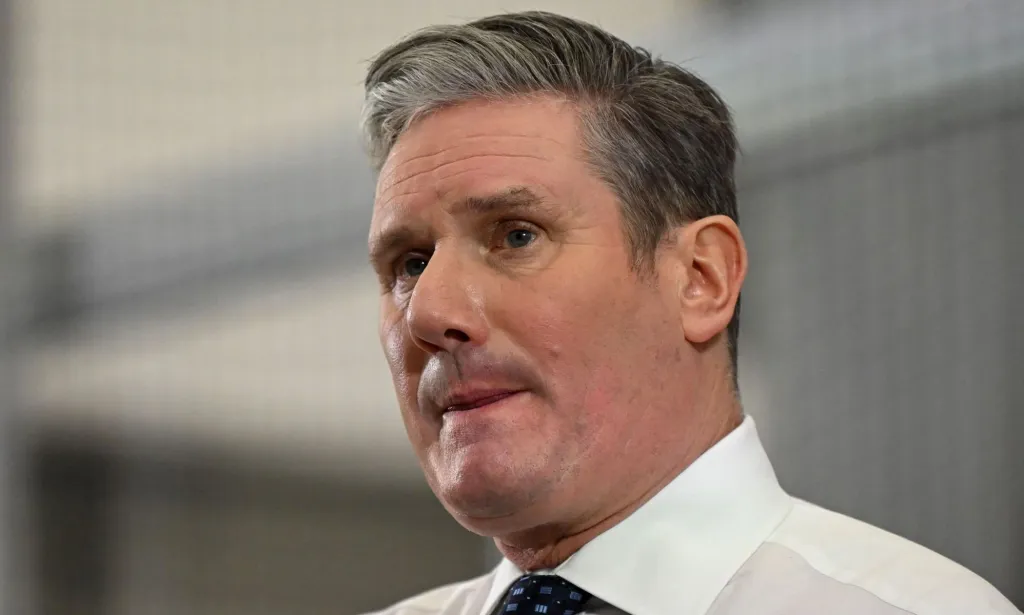Keir Starmer and Rishi Sunak’s views on trans rights: What’s the difference?

What are Rishi Sunak and Keir Starmer’s differences when it comes to their views on trans rights? (Getty)
As the UK general election draws closer, concerns and questions over how Rishi Sunak and Keir Starmer differ on trans rights continue to fester.
With the election set for 4 July, many LGBTQ+ people are concerned about how each party leader will handle the issue of trans rights.
Unsurprisingly given the current climate, transgender rights have featured in several televised election debates so far, most recently on 26 June, where Keir Starmer accused Rishi Sunak of using trans rights as a political football, and referred to his joke about trans people that he made in front of the bereaved mother of murdered trans teenager Brianna Ghey.
However, Labour have also flip-flopped on the issue of trans rights. Firstly, vowing to simplify the “degrading and tortuous gender transition process”, but then conversely indicating that they’ll ban schools from teaching children about trans identities.
Oh, and in a twist no one really expected, Rishi Sunak then took aim at much-loved celebrity David Tennant, after he said he wanted anti-LGBTQ+ politician Kemi Badenoch to “shut up” about trans rights.
So what is actually going on, and where do both politicians stand? Let’s take a look.
How do Keir Starmer and Rishi Sunak want to legislate on trans rights?
Both Starmer and Sunak agree that, at some level, legislation involving the rights and legal recognition of trans and non-binary people needs to be updated. What’s concerning is the difference between their perceptions of what that reform would involve.
While Starmer has routinely lauded the 2010 Equality Act and vowed to uphold it if he were to become prime minister, his more recent comments on trans rights have concerned voters and even started a Labour boycott.
In April, Starmer U-turned on his views on trans rights yet again by backing Canterbury MP Rosie Duffield, which he has previously criticised.
When asked during a broadcast of Good Morning Britain if it was “right or wrong for Rosie Duffield to say women have a cervix” Starmer replied: “Biologically, she of course is right about that.” This is a shift from comments he made in 2021 where he said such statements were “not right”.
Starmer previously vowed to “modernise” the Gender Recognition Act (GRA) in England and Wales during an address at the PinkNews Awards, despite sharing very little information as to what Labour’s planned reforms would be.
Of the little information that has been shared, Labour has vowed to remove spousal consent from the bill and remains adamant that the age limit for obtaining a Gender Recognition Certificate (GRC) should stay at 18-years-old.
Both politicians criticised Scotland’s decision to lower the age limit for obtaining a GRC, with the Labour leader saying it was “too young”.

Meanwhile, Sunak’s near-vitriolic legislative attacks on trans people include banning them from female hospital wards, making efforts to remove gender-neutral toilets from new public buildings, and consistently used trans people as the butt of jokes during political speeches.
More recently, the Conservative government under Sunak have vowed to implement policy which would effectively ban any discussion of gender identity in schools.
Amendments to the relationships, sex and health education (RSHE) guidelines, which schools must follow by law, will ban gender identity from being discussed by teachers, while also banning sex education for under-9s.
The policy goes against the beliefs of the majority of the UK public, the majority of whom believe that transgender identities should be a topic in school sex education.
What do the two party leaders believe about trans people on a personal level?
When it comes to the party rivals’ view of trans people at a personal level, things are far more black and white.
The two still share worrying beliefs that “sex-based rights” are paramount in discussions about gender identity and that single-sex spaces are somehow under threat, but it is the disparity in their tone which is so shocking.
Despite Starmer previously insisting that he believes trans women are women and trans men are men, his recent rhetoric goes against that belief.
He has routinely parroted anti-trans talking points – including that he “respects” JK Rowling’s views – which has led to accusations that he is the “fuel to the flames of anti-trans rhetoric”.
Additionally, his often inability to act upon rampant transphobia within the Labour Party has caused a divide internally that has only widened with more anti-trans rhetoric spreading.

Sunak, meanwhile, has not only expressed his anti-trans views on a number of occasions, but has openly said that trans women are not women and that trans men are not men.
The PM denied that trans women are women during the 2022 leadership race, following Boris Johnson’s departure from Downing Street.
In a series of quickfire questions about various issues during the August TalkTV leadership hustings, he was asked whether a trans woman was a woman.
He simply answered: “No.”
His animosity towards trans people has been evident throughout his career, including during a Mumsnet interview where he said that the rights of women were being “eroded” and that “biology is critically important” when discussing trans issues.
In spite of both politicians’ stagnant views, the fact remains that leader of the opposition Starmer actually believes trans women when they say they are women.
How did this story make you feel?

